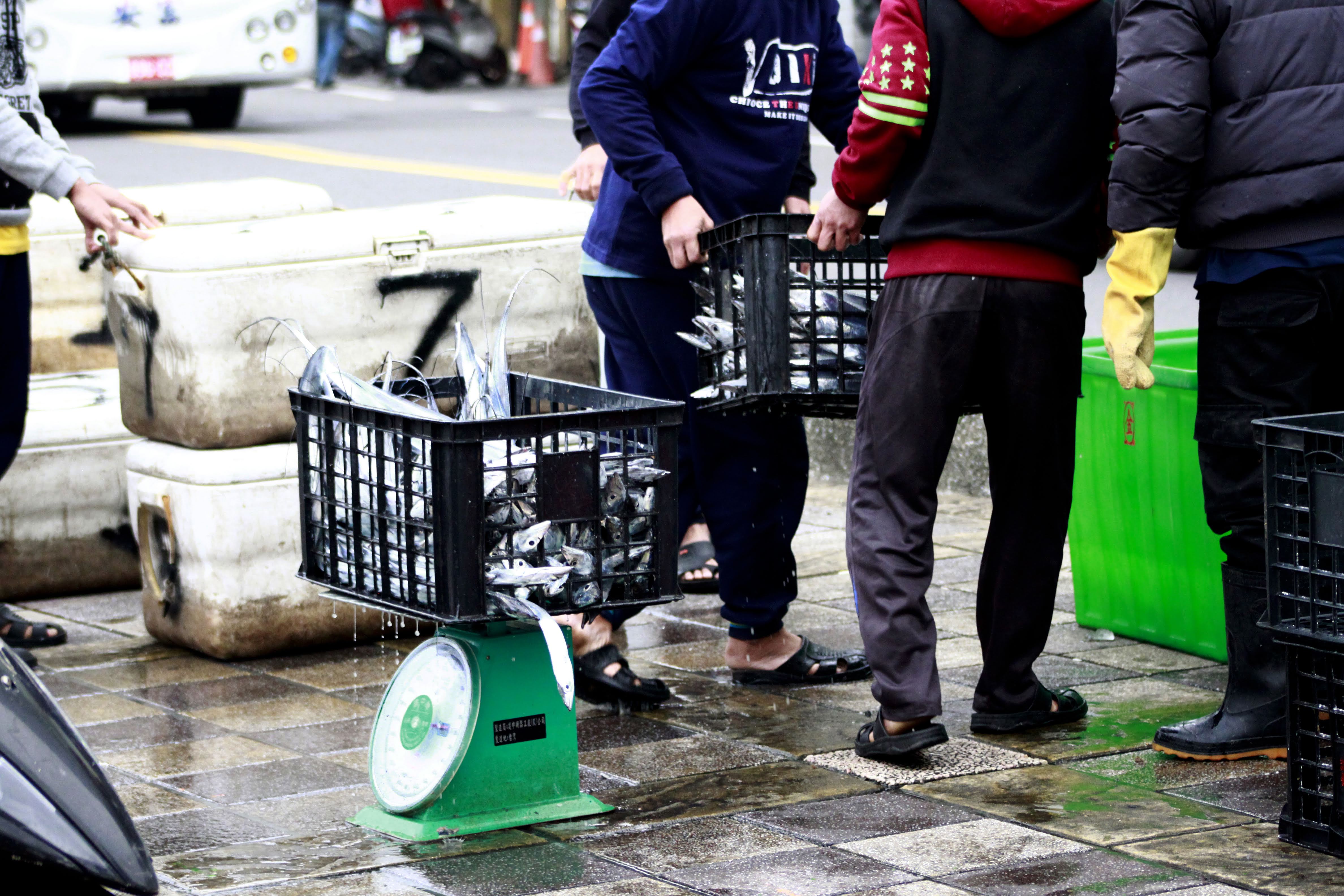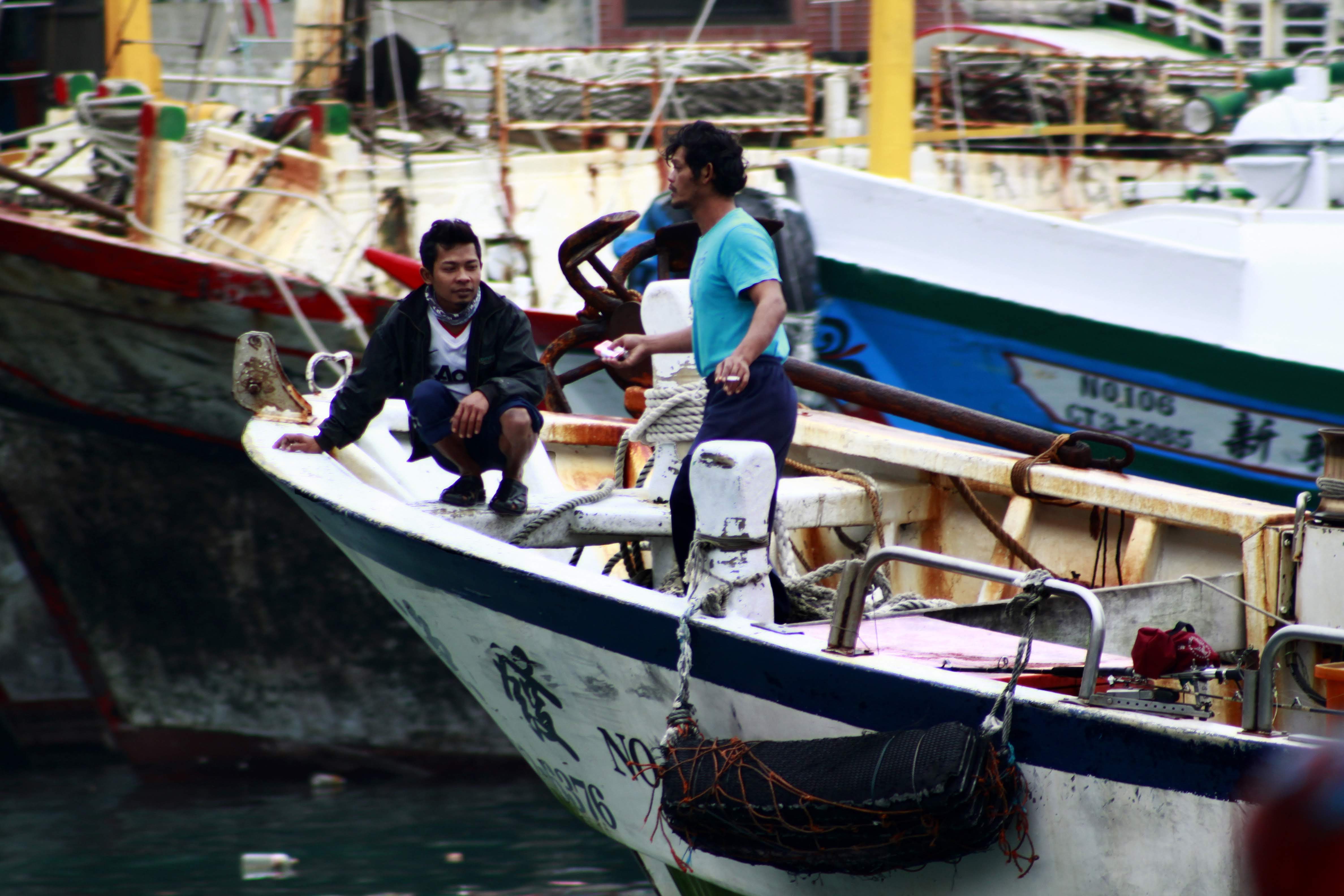Winds of change: The radical potential of the Keelung Migrant Fishermen’s Union
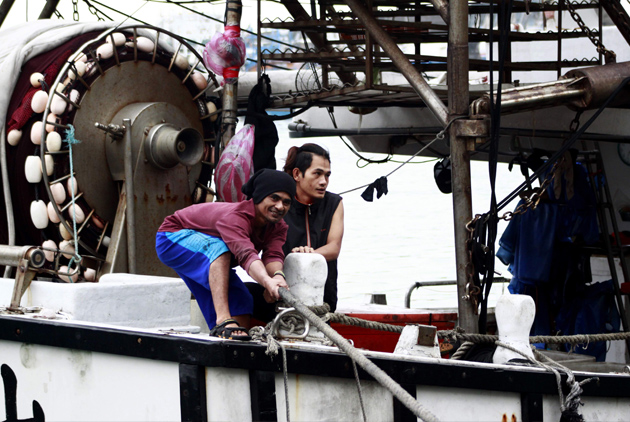
Source:Penny Chiang
The formation of Keelung Migrant Fishermen’s Union is not only an opportune moment to rehash the structural problems of the commercial fishing industry, but also a bellwether of the shifting terrain of labor politics entering a new decade.
Views
Winds of change: The radical potential of the Keelung Migrant Fishermen’s Union
By Andi Kaoweb only
On the last Sunday before the Chinese New Year holiday, throngs of people strolled through downtown Keelung enjoying the warmth and sunshine, a rare reprieve from the normally overcast winter skies of “rain city.” Set apart from the street scenes, a group of thirty odd people packed inside an Indonesian restaurant to celebrate the formal establishment of the Keelung Migrant Fishermen’s Union (KMFU). The KMFU is Taiwan’s second migrant fishermen’s union, gaining legal recognition eight years after the Yilan Migrant Fishermen’s Union (YMFU) became the first migrant labor union in any sector.
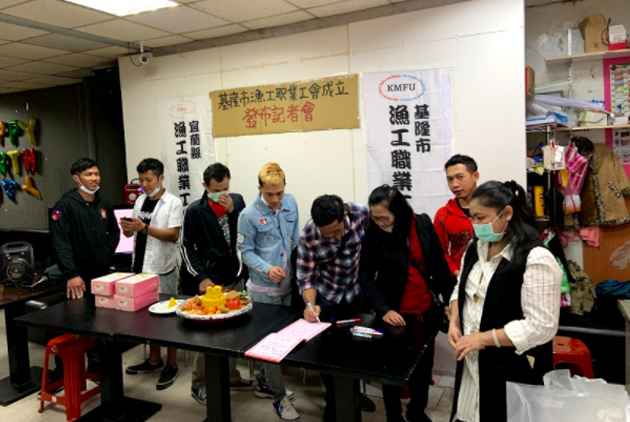
(Source: Andi Kao)
The formation of the KMFU is not only an opportune moment to rehash the structural problems of the commercial fishing industry in the twenty-first century, but also a bellwether of the shifting terrain of labor politics entering a new decade.
The Taiwanese commercial fishing industry is one of the largest and most lucrative in the world. Nearly two thousand Taiwanese-owned vessels ply ocean waters across the globe.
Taiwanese marine product conglomerates command a huge share of the global seafood market, including upwards of 50 percent of sashimi grade tuna. Fish exported to Japan, Europe, and the United States is largely processed in Southeast Asia, the Pacific islands, and Africa. Headquartered in Kaohsiung, FCF Co., Ltd., is the largest tuna trader in the world and works with over 250 distant water long-line fishing vessels. In 2020, FCF Co., Ltd. acquired iconic seafood marketer Bumble Bee Foods through a stalking horse bid.
(Source: Penny Chiang)
At the heart of Taiwan’s development into a “global fishing powerhouse” is the degradation and cheapening of migrant workers from impoverished areas of the Global South. In recent years, investigative reports published by The New York Times, Greenpeace, BBC, The Diplomat, and The Reporter have extensively documented and widely publicized human rights abuses and illegal fishing practices aboard Taiwanese-owned vessels.
High profile deaths of migrant workers at sea and international sanctions placed on the US$2 billion industry for illegal, unreported, and unregulated (IUU) fishing and forced labor underscore the findings of these reports. If, in 2018, the general state of living and working conditions of migrant fishermen could still be described as the “dirty secret of Taiwan's fishing industry,” awareness of systematic exploitation and abuse has largely solidified within the public consciousness.
The violent and exploitative conditions of marine resource extraction have been met with organized resistance and struggle. Faith-based service and advocacy organizations like Stella Maris, the Rerum Novarum Center, and the Seamen’s/Fishermen’s Service Center aid migrant fishermen who are owed back wages, suffer occupational injuries, and are subjected to myriad other forms of mistreatment and abuse. Groups such as the Taiwan Association for Human Rights, Environmental Justice Foundation, and Greenpeace focus on lobbying the government to revise and enforce laws to protect the basic rights, safety, and interests of migrant fishermen. Still others, including the Taiwan International Workers’ Association and Serve the People Association, balance service and advocacy with research and lobbying.
(Source: Penny Chiang)
In addition to Taiwanese civil society organizations, migrant fishermen themselves have organized to defend their basic rights and interests. Unique among these organizations are legally recognized trade unions, including the YMFU and, now, the KMFU.
Membership and leadership of the KMFU is composed entirely of Indonesian migrants. Secretary General Mei-hua Lee (李美華) became involved with the incipient organization in May 2019 when a group of Indonesian migrant fishermen asked her to help organize a new union in part because of her fluency in Mandarin. Mei-hua first moved to Taiwan 16 years ago herself through the guest worker program and now runs a restaurant tucked away in an alley adjacent to the newly renovated Keelung Cruise Ship Terminal. Although initially reluctant to become actively involved, Mei-hua offered to let the group meet in her restaurant and small apartment nearby.
Mei-hua’s restaurant was a fitting location to hold meetings and organize new members. Indonesian migrant fishermen frequently pay the $15NT bus fare to take the local bus from nearby harbors to downtown Keelung to congregate there in the evenings while onshore. Throughout the year, holiday, birthday, and religious celebrations fill the restaurant with bustling activity.
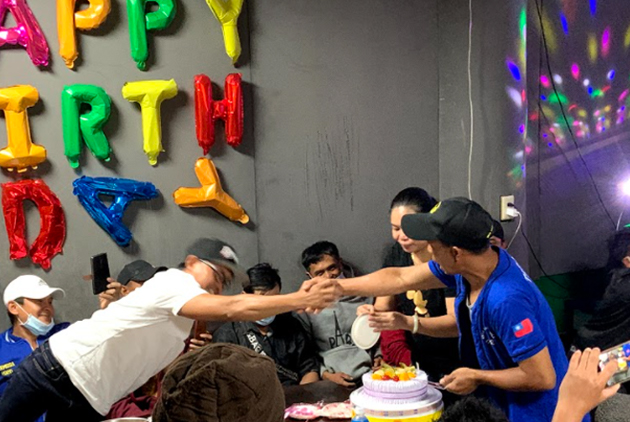
(Source: Andi Kao)
Mei-hua welcomes migrant fishermen who need temporary accommodations or a place to set their belongings.
I want them [migrant fishermen] to feel like this is their home. They don’t have a place to live other than their boats, so at least they can come here to a place with four walls.
Over the years, countless migrant fishermen have stayed overnight while looking for new employers or before returning to Indonesia. The restaurant is a hub not only for Indonesian migrant fishermen, but also for men and women employed as factory workers, domestic care workers, and in commercial shipping.
Restaurants such as Mei-Hua’s play a vital role in the organization of Indonesian migrant communities throughout Taiwan. In addition to offering food, entertainment, and relaxation, they serve as meeting places for hometown and faith-based associations. Hometown and faith-based organizations function as social clubs, governance bodies, and mutual aid societies. For migrant fishermen employed in one of the most dangerous occupations in the world, these organizations are vital means of caring for the sick, burying the dead, and providing solace and comfort for the living.
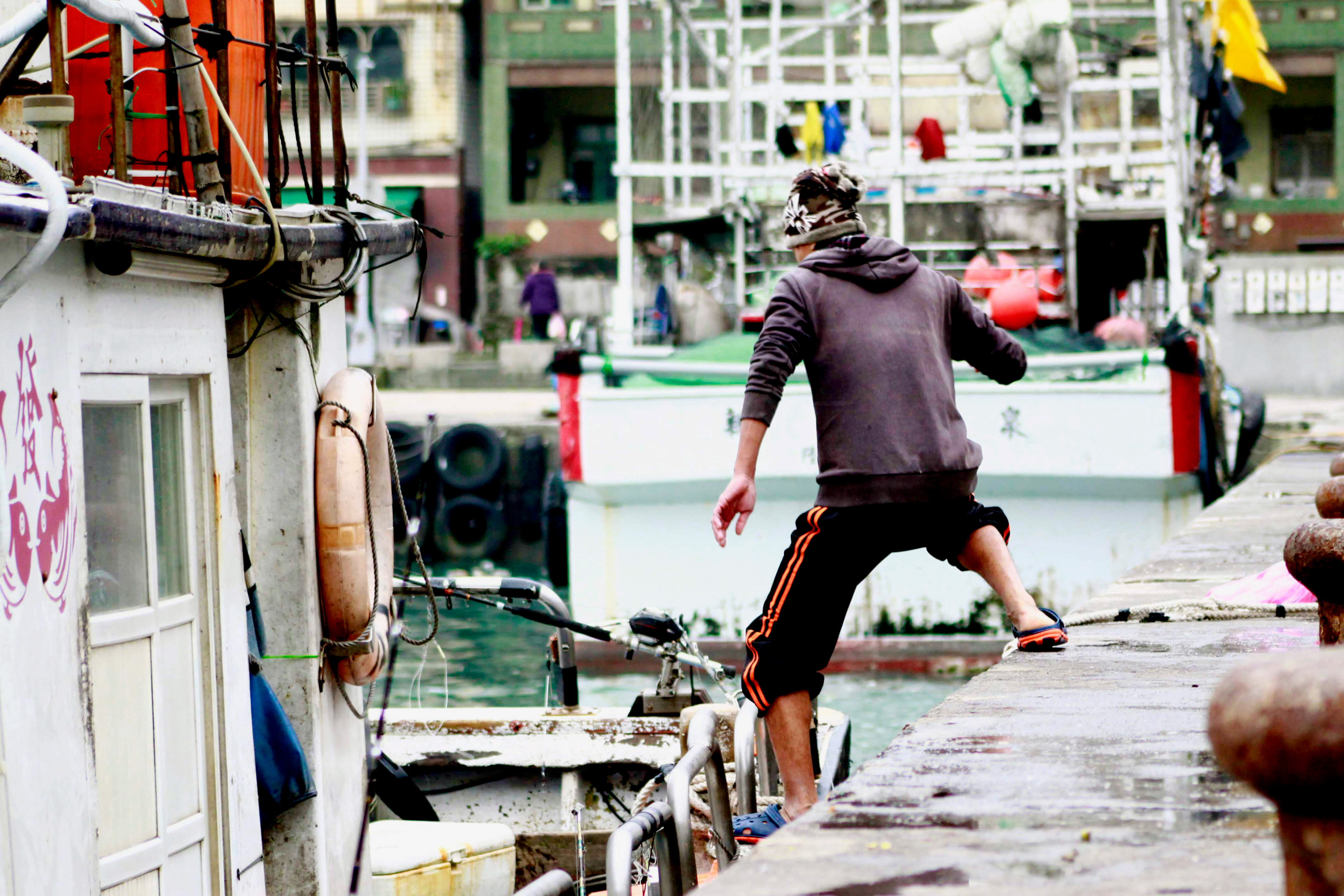
(Source: Penny Chiang)
Commenting on the social life of African-Americans in The Souls of Black Folk, W.E.B. Du Bois notes that, “a proscribed people must have a social centre, and that centre for this people is the Negro church.” In similar fashion, hometown and faith-based organizations are pillars of the Indonesian community in Taiwan in a context wherein Southeast Asian migrant workers are discriminated against and denied access to basic political rights and social protections.
With its roots in the broader Indonesian migrant community in Keelung, social relations extending beyond the workplace fundamentally shape the character of the KMFU. Whereas Taiwanese unions have historically retreated into an economistic calculus, the KMFU is more broadly concerned with political and social power structures touching upon migrant working class communities, including immigration law, foreign policy, social welfare, and cultural institutions. KMFU members are involved, for instance, in a project to teach students at a local high school about Indonesian culture and society. Meanwhile, representatives of the National Immigration Agency participated in the press conference at Mei-hua’s restaurant at the invitation of the KMFU.
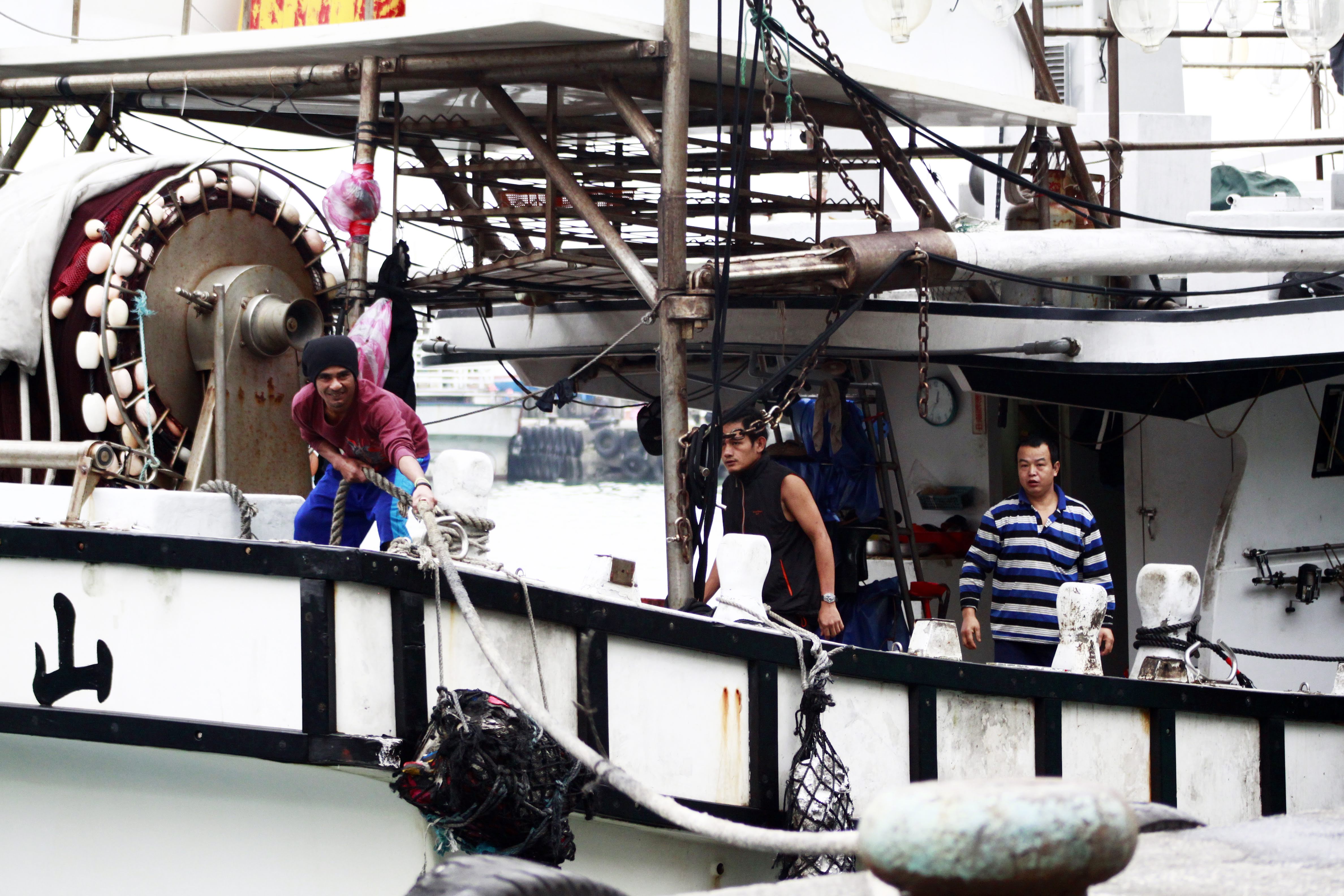
The new organization is thus not simply a trade union designed to fight employers for better wages or improved conditions. These are objectives, too, but the means of achieving them is through the uplift and empowerment of the broader class of Indonesian migrant workers. The KMFU’s struggle is one for higher principles of collective freedom and human dignity as well as material welfare and wellbeing. The dual nature of the KMFU’s mission aligns with the spirit of James Baldwin’s observation that, man cannot live by bread alone; on the other hand, men can scarcely begin to react to this principle until they – and, still more, their children – have enough bread to eat.
Emerging from the broader social life of the working class Indonesian community in Keelung, the KMFU is less of a rigid trade union shell representing the economic interests of migrant fishermen than a dense web of relationships built upon, and struggling to maintain and strengthen, mutual trust and commitment to the defense of the community and its values.
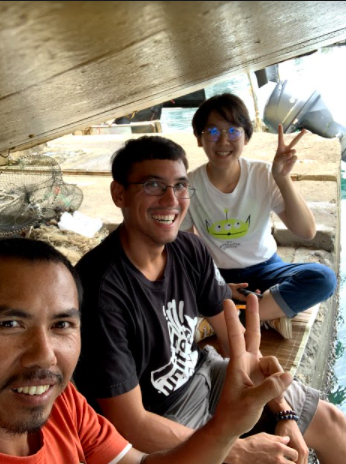
(Source: Andi Kao)
The social and political character of the KMFU is significant not only for modeling a broad-based form of unionism, but also for its potential to challenge dominant portrayals of Southeast Asian migrant workers.
On the one hand, migrant workers are seen as objects of development. According to this narrative, migrants from Southeast Asia find work in Taiwan to exchange their labor power for higher remuneration than can be secured in their home communities. While this is undoubtedly true, its one-dimensional characterization of the motives for labor migration reduces migrant workers to economic creatures. It denies the humanity of migrant workers as complex spiritual, cultural, and moral beings. On the other hand, groups sympathetic to the plight of migrant fishermen tend to treat them as structurally powerless victims of exploitation and abuse. Migrant fishermen are seen as objects of pity and charity as a consequence of language barriers, debt relations, employer coercion, political repression, and the lack of voting rights.
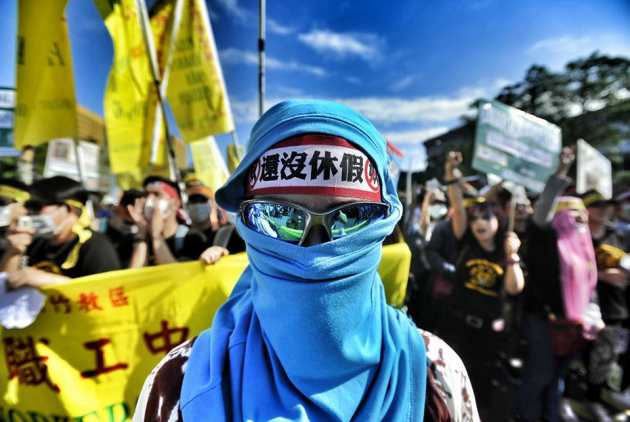
(Source: Kuo-Tai Liu)
The outcome in either case is to dehumanize migrant workers by seeing them as peoples without history and, hence, contributing nothing to learn from. In his life work, the towering philosopher and freedom fighter W.E.B. Du Bois illuminated how the erasure of the history of oppressed peoples legitimizes and perpetuates the ongoing exploitation and appropriation of social wealth for the profit of the few. It forecloses upon the possibility of creating alternative political and economic foundations that prioritize the moral and spiritual development of a collective people. By forming the KMFU as an organization engaged in a struggle for collective human dignity and freedom in addition to better working conditions, Indonesian migrants are pushing against this erasure and opening pathways to transforming the conditions of life and labor in Taiwan.
It is important, however, to recognize the contested nature of this process. Bonds of trust, solidarity, and commitment must be constantly forged and can be broken in an instant. Indeed, the difficulties of unionizing were in part a reflection of the fragility of these bonds. The new organization quickly ran into difficulties navigating the boundaries of membership during the organizing process. Taiwan’s labor union law restricts trade union membership to workers within a single administrative district. The logic of the KMFU, cutting across harbors, yet excluding those in nearby New Taipei City, caused confusion over who could and could not be a member of the union. The resulting friction raised doubts about the usefulness of establishing a new organization with a countervailing logic to hometown, faith-based, and harbor-based groups. At several points, the boundaries of inclusion and exclusion threatened to derail the project entirely as community leaders found out that they would be barred from formal membership.
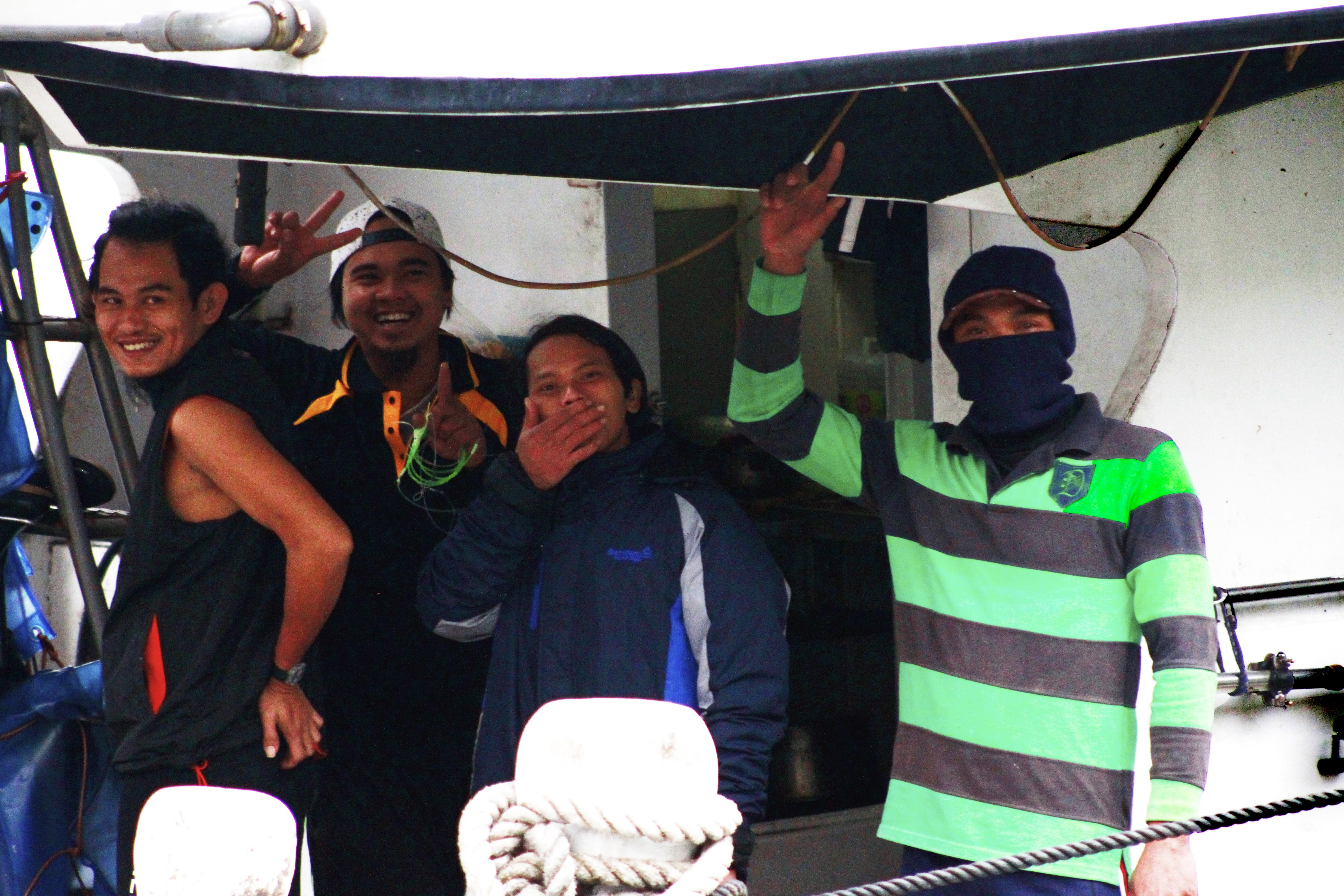
(Source: Penny Chiang)
Despite the challenges of introducing a new organizational structure into the social relations of the Indonesian community in Keelung, the KMFU managed to build support through the tireless efforts of community leaders. After two years of organizing fits and starts, the KMFU finally joined the YMFU in representing migrant workers employed in Taiwan’s embattled fishing industry.
At the press conference announcing the formation of the KMFU, Wallace Huang, a pro bono legal consultant, noted that the KMFU is “not just a cultural organization that gets together for fun and puts on performances, but an organization that can use the power of the law to demand basic protections.”
While this is undoubtedly true, the transformative potential of the KMFU lies beyond its role in employment relations. It lies in the everyday struggle to articulate and embody alternative visions of social relations linking Indonesian migrants and the wider community in Keelung and beyond. Turning Huang’s words on their head, the KMFU is not just a labor organization fighting for better wages and protections, but an organized expression of an oppressed people demanding collective human dignity and freedom.
About the author:

Andi Kao (高燕迪) is a PhD Candidate at Cornell University and affiliate with the Global Asia Research Center (GARC) at National Taiwan University (NTU). He is currently conducting research on migrant labor and the Taiwanese fishing industry.
Have you read?
♦ The Rootless: Migrant Labor through the Eyes of the Oppressed
♦ My Experience as a Migrant Worker, Migrant Wife and Migrant Activist in Taiwan
♦ When the One in the Dark Speaks, Will You Listen?
Uploaded by Penny Chiang

